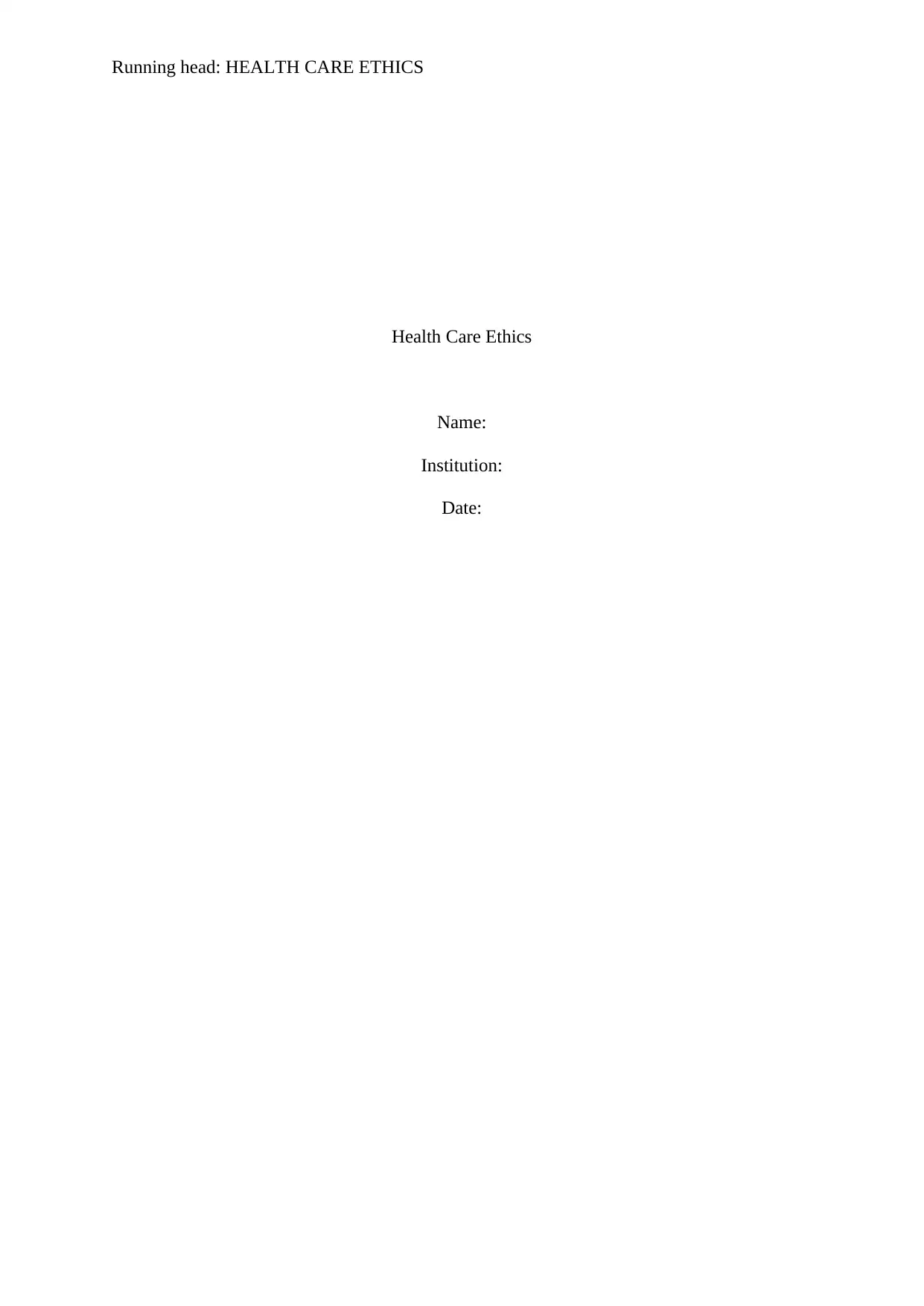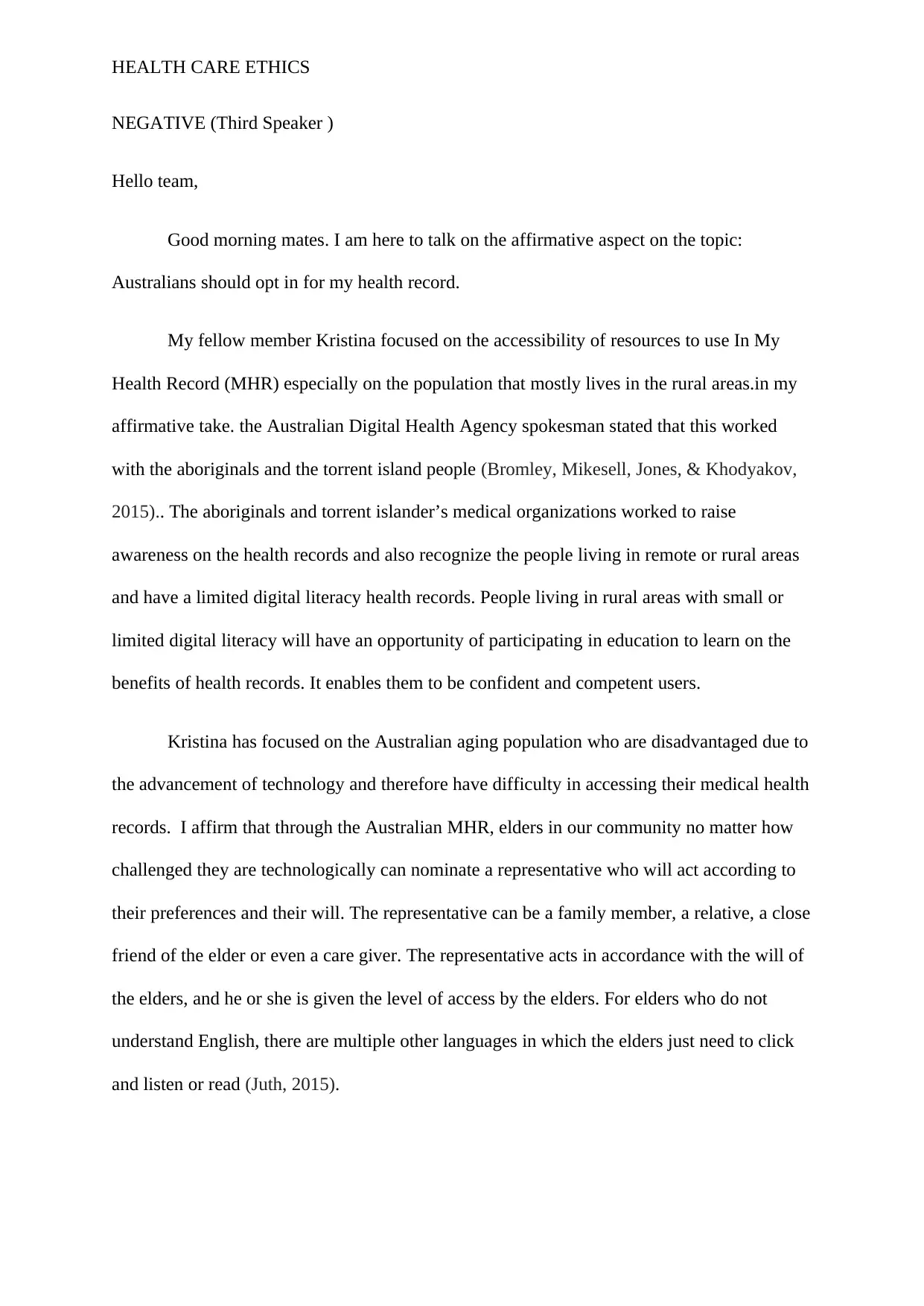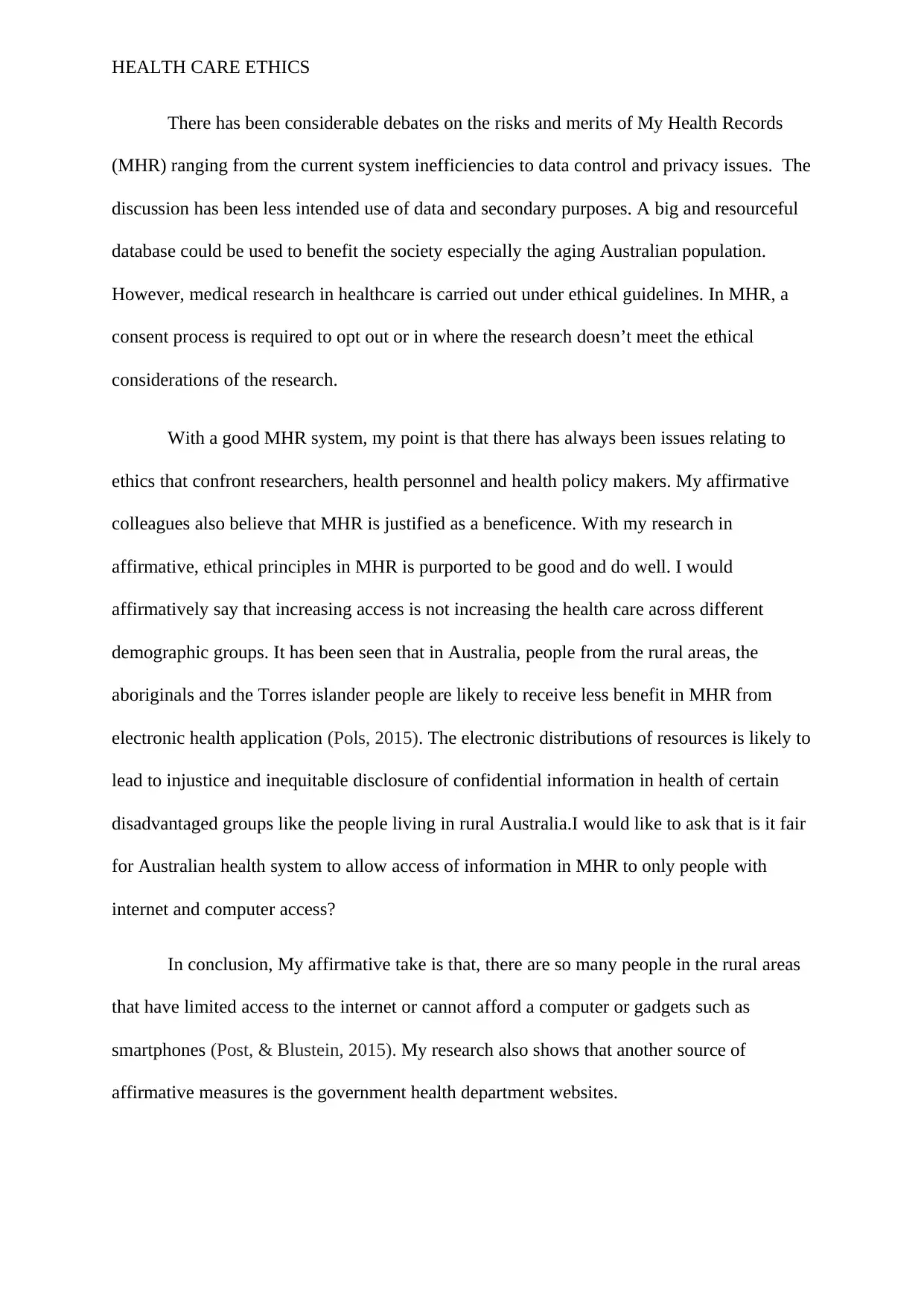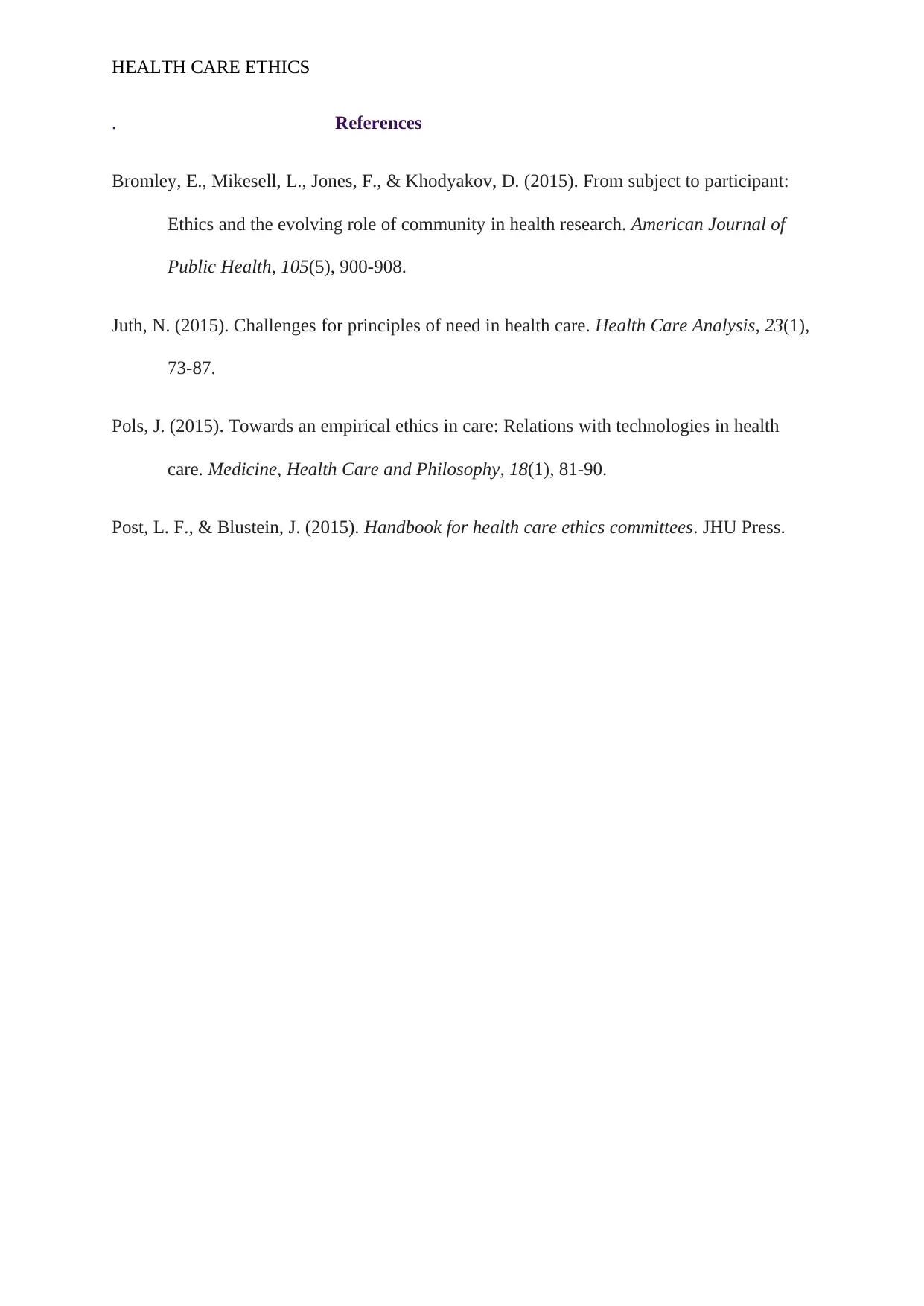Analysis of Health Care Ethics: My Health Record Debate in Australia
VerifiedAdded on 2022/12/01
|4
|821
|144
Report
AI Summary
This report presents an analysis of a debate concerning Australia's My Health Record, focusing on the affirmative perspective. The report examines the arguments for and against mandatory participation in the digital health record system, addressing key themes such as accessibility for rural populations, technological challenges for the elderly, data security, ethical considerations in research, and the overall beneficence of the system. The analysis includes the viewpoints of various speakers, referencing the benefits of the My Health Record system, while also acknowledging the concerns surrounding data privacy, equitable access, and the potential for injustice among disadvantaged groups. The report also considers the need for ethical guidelines in healthcare research and the impact of electronic health applications on different demographic groups, ultimately exploring the complexities of implementing a national digital health record system.
1 out of 4










![[object Object]](/_next/static/media/star-bottom.7253800d.svg)